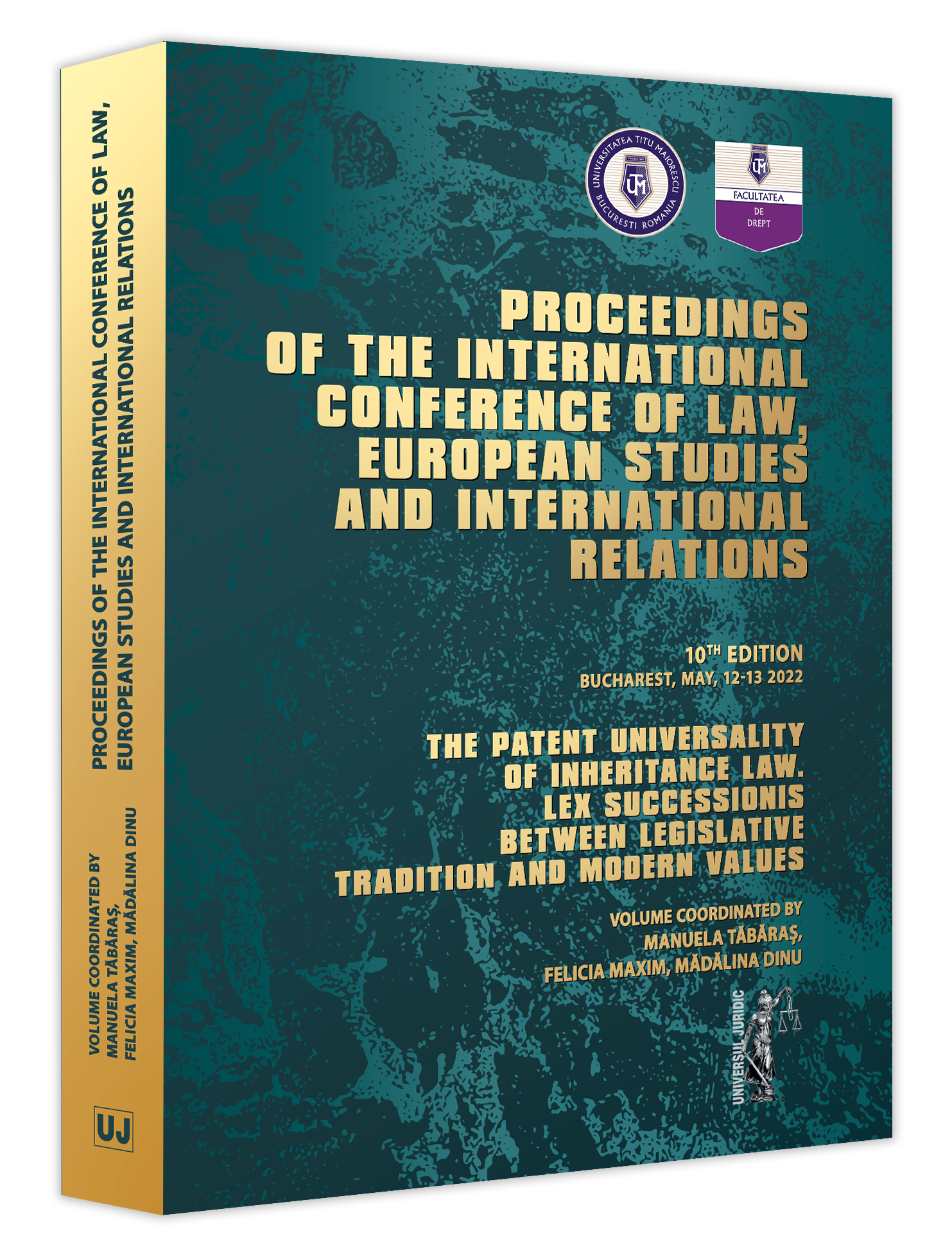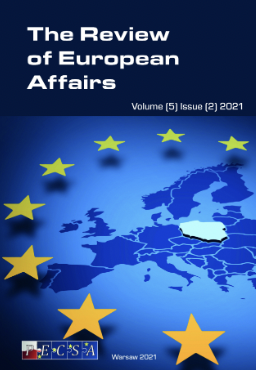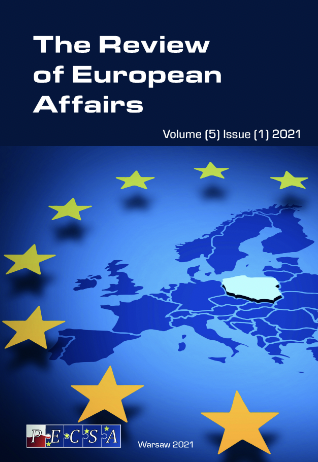
DOCTRINAL CONSIDERATIONS AND CONTROVERSIES REGARDING THE TRUST SUBSTITUTION
DOCTRINAL CONSIDERATIONS AND CONTROVERSIES REGARDING THE TRUST SUBSTITUTION
Keywords: succession; trust substitution; trust; liberality; disposer; instituted; substituted;
An expression of generosity, liberalities subordinate patrimonial interests to emotional feelings, which determines the importance, interest and normative concern of the legislator towards them. As his will to dispose of his property by bequest or donation can significantly affect the right to property and restrict the free movement of goods, the trust substitution can be both a useful and hostile legal instrument. The current regulation of the Civil Code gives the trust substitution a double nature, on the one hand recognizing mortis causa the authority of will of the disposer, with time limitation of its effects, and on the other hand, thus achieving a balance between the absolute character of the principle of freedom. Testamentary, the free movement of goods and the right of the owner to dispose freely and absolutely of his property, a right guaranteed by the Constitution Given the historical perspective of the institution, but also its evolution within the laws of European states, this paper aims to analyze and clarify the main issues and doctrinal controversies expressed, highlighting the impact and importance of trust substitution in Romanian civil law, taking into account the fact that the current regulation offers a great freedom to the author of the patrimonial disposition for the cause of death, without, however, allowing the perpetuation of his will.
More...

